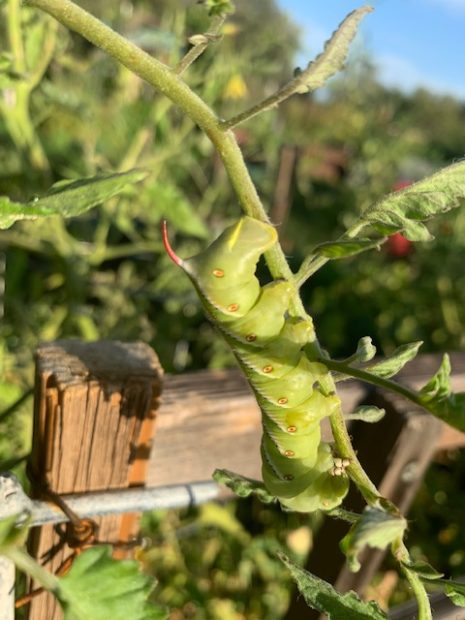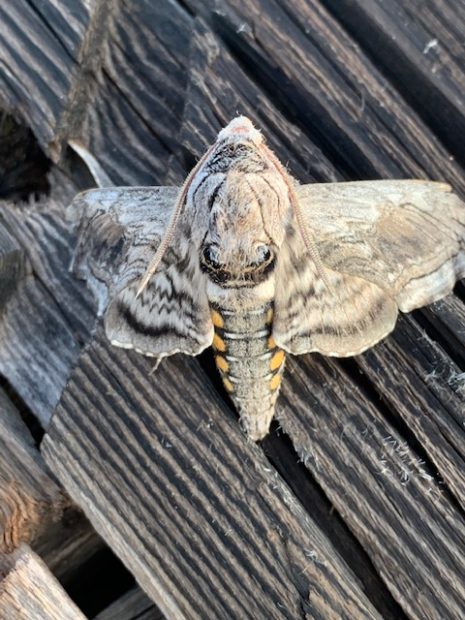The photos are mine of the Mirabilis longiflora flowers and Manduca sexta, the Carolina sphinx moth and tobacco hornworm. Note the seven streamline white stripes and the red horn on the tobacco hornworm. The adult moth, has some pretty cool markings as well.

We don’t find many tomato hornworms (M. quinquemaculata) in our garden, the tobacco hornworm being the predominant glutton. Maybe the Carolina sphinx moth (M. sexta) hits the long flower four o’clock found around our home in between visits to Datura? OR more likely the 5 spotted hawkmoth leaves the research scientists in the nearby hills and hangs out at the Mesquitey homestead.
Thanks to friends Janine McCabe and JenJen Zen, who whether they know it or not…now they do…were part of this moth journey.


Eating and sharing homegrown food seems to be a spiritual event for Petey. Amen! There is nothing better than homegrown food. And even if...

We have gone back to the shrine at the base of the walnut tree a couple more times. It’s a beautiful woodland and somehow...

Petey and Ms. Mesquitey hike into the land of the Apache pine.